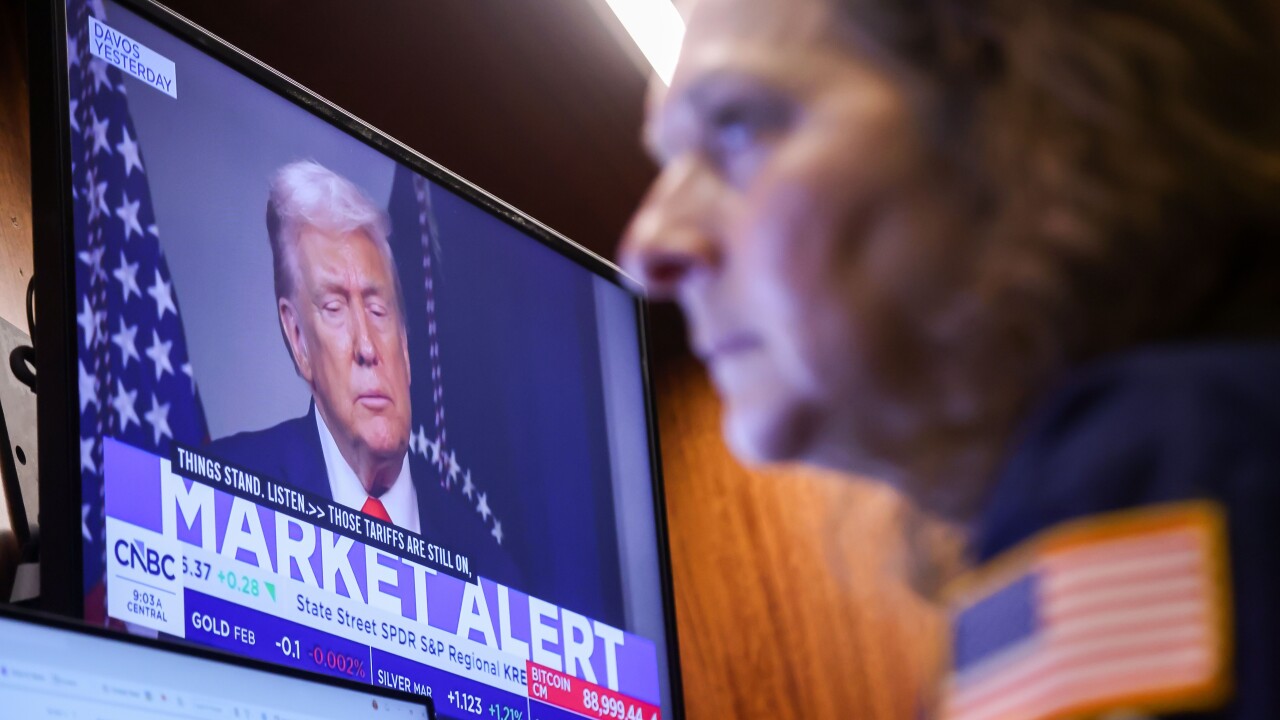If Congress goes all in on crypto, some of America's top banks are ready to follow.
At an industry conference in New York this week, top executives at
"We have to have it. The industry has to have it,"
The backdrop for that bullishness is the most crypto-friendly government the 16-year-old industry has ever seen. As the CEOs spoke, the U.S. Senate moved closer to passing the
This new environment marks a stark turnaround from the Joe Biden era, when regulators openly discouraged investing in digital assets and rejected many applications for new crypto products. Former Securities and Exchange Commission Chair Gary Gensler, for example, once
That atmosphere, combined with a lack of crypto legislation during the Biden years, deterred many banks from jumping into the market. But on Wednesday, the Senate
Meanwhile, the House is mulling over the STABLE Act — short for the Stablecoin Transparency and Accountability for a Better Ledger Economy Act — which covers similar ground as the Senate measure and also enjoys bipartisan support. The two bills may eventually be reconciled into one.
As the political winds have shifted, a number of bank leaders appear to have lost their reservations about crypto.
On Wednesday, Moynihan credited the changing regulatory scene for his bank's evolution.
"The problem before was, it wasn't clear we were allowed to do it under the banking regulations, and there was a lot of mystery about that," Moynihan said. "If they get the GENIUS Act or the STABLE Act or anything like that passed … that clarity will allow us to figure out whether there's really a business proposition."
Bryan Preston, the chief financial officer of the $213 billion-asset Fifth Third, took a similarly proactive stance, saying stablecoins could be used to make international payments instantaneously, or to move collateral instantly from market to market.
"We're always trying to look ahead," Preston said at the conference. "We think that there are some interesting places where stablecoin can really create some efficiencies in the commerce space."
Gunjan Kedia, CEO of the $676 billion-asset
"The product didn't really take off because the regulatory regime at that point was very uncertain for large institutional investors," Kedia said on Wednesday. "That product is back, and we are very able to provide it."
The CEO also said
"We are watching it, and there's a lot to be sorted out before the role we play solidifies in our mind," Kedia said.
And it's not just American banks getting in on the action. The French bank Societe Generale is planning to introduce a U.S. dollar-based stablecoin, called
To be sure, not every bank is rushing into the crypto space. John Turner Jr., the CEO of Birmingham, Alabama-based Regions Financial, which has $160 billion of assets, showed a clear reluctance to jump in.
"Never say never, but I've not been a great fan of crypto," Turner said Tuesday at the conference. "And so I think we'll be a follower there, for sure, not a leader."
But for the most part, bank leaders struck a markedly more assertive tone about digital currencies than they had in the past. In Moynihan's view, embracing stablecoin is a matter of necessity.
"At the end of the day, if people use it as a transactional account, we have to be ready to have those transactional deposits stay within our franchise," Moynihan said, "or else you'll see a major migration of deposits outside the industry."
—Colin McNamara contributed to this article.







